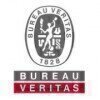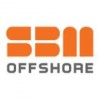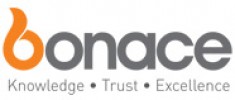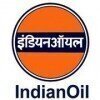Inspection Engineer
100+ Inspection Engineer Interview Questions and Answers

Asked in RITES

Q. What is the least count of any measuring instrument?
The least count of a measuring instrument is the smallest value that can be measured by the instrument.
The least count is determined by the smallest division on the scale of the instrument.
It represents the precision or accuracy of the instrument.
For example, a ruler with millimeter divisions has a least count of 1 mm.
A Vernier caliper with divisions up to 0.1 mm has a least count of 0.1 mm.
The least count is important in ensuring accurate measurements and minimizing errors.

Asked in Bureau Veritas

Q. According to ASME Sec VIII Div.1, which code should be used for the transportation of Hydrocarbon Fluids?
ASME B31.3 is the code used for transportation of Hydrocarbon Fluids as per ASME Sec VIII Div.1.
ASME B31.3 code is used for transportation of Hydrocarbon Fluids
ASME Sec VIII Div.1 is for pressure vessels, not transportation
Examples: ASME B31.3 code is used for pipelines carrying hydrocarbon fluids
Inspection Engineer Interview Questions and Answers for Freshers

Asked in Adani Gas

Q. What is your experience with MDPE pipe top covers at ground level?
The top cover of the MDPE pipe should be at ground level.
The MDPE pipe should be installed in such a way that the top cover is level with the ground surface.
This ensures that the pipe is adequately protected and prevents any damage or exposure.
The top cover can vary depending on the specific requirements and regulations of the project.
For example, in some cases, the top cover may need to be a minimum of 300mm, while in others it may be different.
It is important to follow the ...read more

Asked in Nippon Koei India

Q. What is the full process of diaphragm wall construction?
Diaphragm wall construction involves several steps including excavation, reinforcement placement, concrete pouring, and panel extraction.
Excavation of a trench to the desired depth and width
Installation of guide walls to maintain the trench dimensions
Reinforcement cages are lowered into the trench and positioned correctly
Concrete is poured into the trench, displacing the bentonite slurry
Panel extraction is carried out to remove the guide walls and complete the diaphragm wall

Asked in RITES

Q. Why do tractors have larger rear wheels?
Tractors have larger rear wheels for better traction, stability, and weight distribution.
Larger rear wheels provide better traction on uneven or slippery surfaces.
The weight of the tractor is primarily distributed towards the front due to the heavy engine and attachments. Larger rear wheels help balance the weight distribution.
The larger surface area of the rear wheels helps in reducing ground pressure, preventing sinking or getting stuck in soft soil.
The increased diameter o...read more

Asked in Nippon Koei India

Q. What is the difference between Top-Bottom construction and Bottom-Top construction?
Top bottom construction refers to building from top to bottom while bottom top construction is the opposite.
Top bottom construction involves starting from the top and building downwards while bottom top construction starts from the bottom and builds upwards.
Top bottom construction is commonly used in high-rise buildings while bottom top construction is used in underground structures like tunnels.
Top bottom construction requires scaffolding and cranes while bottom top construc...read more
Inspection Engineer Jobs




Asked in Adani Gas

Q. WHAT ABOUT CGD FIELD
CGD field refers to the Corrosion and Gas Detection field in the inspection industry.
CGD field involves inspecting and monitoring equipment and systems for corrosion and gas leaks.
Inspection engineers in the CGD field use various techniques such as visual inspections, non-destructive testing, and gas detection equipment.
They ensure compliance with safety regulations and standards to prevent accidents and equipment failures.
Examples of equipment inspected in the CGD field incl...read more

Asked in TÜV NORD

Q. What tests are performed on cables, transformers, and motors, and can you provide a detailed description of these tests?
Various tests are performed on cables, transformers, and motors to ensure their proper functioning.
Cables are tested for insulation resistance, continuity, and high voltage.
Transformers are tested for turns ratio, insulation resistance, and winding resistance.
Motors are tested for insulation resistance, winding resistance, and no-load and load current.
Other tests may include temperature rise, partial discharge, and impulse voltage tests.
Testing is important to ensure safety a...read more
Share interview questions and help millions of jobseekers 🌟


Asked in Bureau Veritas

Q. Which NDT method is used to measure sub-surface defects below 12mm?
Ultrasonic Testing (UT) is used to measure sub surface defects below 12mm.
Ultrasonic Testing (UT) is a non-destructive testing method that uses high frequency sound waves to detect internal flaws in materials.
UT is commonly used in industries such as aerospace, automotive, and manufacturing to inspect for defects like cracks, voids, and inclusions.
The technique is effective for detecting sub surface defects as it can penetrate materials and provide detailed information about ...read more

Asked in Adani Gas

Q. How many types of MDPE pipe are there?
There are several types of MDPE pipes used in various applications.
MDPE stands for Medium Density Polyethylene.
MDPE pipes are commonly used for gas and water distribution.
Types of MDPE pipes include PE80 and PE100, which refer to the density and strength of the material.
MDPE pipes are available in different sizes and pressure ratings.
Examples of MDPE pipe applications include underground gas pipelines, water supply networks, and irrigation systems.

Asked in Bonace Engineers

Q. What are the steps for pressure vessel inspection during maintenance?
Steps for pressure vessels inspection during maintenance include visual inspection, thickness measurement, non-destructive testing, and documentation.
Perform visual inspection of the pressure vessel for any signs of damage or corrosion.
Measure the thickness of the vessel walls using ultrasonic testing or other methods.
Conduct non-destructive testing such as radiography or magnetic particle testing to detect any defects.
Document all inspection findings and create a maintenance...read more

Asked in Intertek

Q. What is the required depth for IGL gas laying?
The depth required for IGL gas laying depends on various factors such as soil type, traffic load, and depth of other utilities.
The depth should be sufficient to prevent damage from external factors such as traffic load and soil type.
The depth should also be deep enough to avoid interference with other utilities.
The depth requirement may vary depending on the location and local regulations.
For example, in Delhi, the minimum depth requirement for IGL gas laying is 1.2 meters.
Th...read more
Asked in Resonance Energy

Q. What is the MDPE pipe specification, and why is it used in CGD?
MDPE pipe is a type of plastic pipe used in CGD for gas distribution.
MDPE stands for Medium Density Polyethylene.
It has a higher resistance to stress cracking and greater toughness than LDPE.
MDPE pipes are used in CGD due to their flexibility, durability, and resistance to corrosion.
They are also lightweight and easy to install.
MDPE pipes are available in various sizes and pressure ratings.
They are commonly used for gas distribution in residential, commercial, and industrial ...read more
Asked in Dynepro

Q. 1-What about Material Grouping and P numbers, 2-What are Code and standards of Power Boiler Piping and Pressure Vessel’s with ASME 31.1, ASME IX, 3-IBR 1950 Standard of Indian Boiler Manufacturing
Answering questions related to Material Grouping, P numbers, Code and Standards of Power Boiler Piping and Pressure Vessel's with ASME 31.1, ASME IX, and IBR 1950 Standard of Indian Boiler Manufacturing.
Material Grouping is the classification of materials based on their chemical composition and mechanical properties.
P numbers are assigned to each group of materials to indicate their weldability and compatibility with other materials.
ASME 31.1 is the code for Power Piping and ...read more

Asked in IDEMI

Q. What is calibration, GD and T symbol in engineering drawing, which type of inspection instruments used earlier like vernier, Micrometer,bore gauge, cmm etc
Calibration is the process of comparing a measurement device to a known standard to ensure accuracy. GD&T is a symbolic language used to communicate design intent on engineering drawings.
Calibration ensures that measurement devices are accurate and reliable.
GD&T symbols are used to specify the geometric requirements of a part on an engineering drawing.
Examples of inspection instruments used earlier include vernier calipers, micrometers, bore gauges, and coordinate measuring m...read more

Asked in RITES

Q. Draw power flow schematic diagram for a tractor.
A power flow schematic diagram for a tractor.
Start with the engine as the power source
Show the power flow to the transmission
Include the power flow to the wheels
Illustrate any additional components such as hydraulic systems or electrical systems

Asked in Bureau Veritas

Q. What is the hydrotest pressure of a vessel with a MAWP of 1MPa?
The hydrotest pressure of a vessel with MAWP=1MPa is typically 1.5 times the MAWP.
Hydrotest pressure is usually 1.5 times the MAWP (Maximum Allowable Working Pressure)
For MAWP=1MPa, the hydrotest pressure would be 1.5 MPa
Hydrotest pressure ensures the vessel's structural integrity under pressure

Asked in Jindal Stainless

Q. What is stainless steel, and what are its properties and applications?
Stainless steel is a corrosion-resistant alloy with high strength and durability, commonly used in various industries.
Stainless steel is a type of steel alloy containing a minimum of 10.5% chromium, which creates a passive oxide layer that prevents corrosion.
It has high strength, excellent durability, and resistance to corrosion, making it ideal for applications in harsh environments.
Stainless steel is commonly used in the construction industry for structural components, in t...read more

Asked in TÜV SÜD

Q. What documents are required for the inspection of material and work?
The documents required for the inspection of material and work include specifications, drawings, test plans, inspection reports, and certificates.
Specifications: Provide detailed information about the required standards and quality of the material and work.
Drawings: Illustrate the design and dimensions of the material and work to be inspected.
Test plans: Outline the procedures and criteria for conducting tests on the material and work.
Inspection reports: Document the findings...read more

Asked in Indian Oil Corporation

Q. How many types of heat exchangers are there?
There are several types of heat exchangers used in various industries.
Shell and tube heat exchanger
Plate heat exchanger
Double pipe heat exchanger
Spiral heat exchanger
Air cooled heat exchanger
Finned tube heat exchanger

Asked in Intertek

Q. What do W, H, R, P, and V represent?
W, H, R, P, and V represent different variables or parameters.
W could represent weight or width
H could represent height
R could represent radius
P could represent pressure
V could represent volume

Asked in Adani Gas

Q. HOW MANY TYPES OF PE
There are several types of PE used in different industries.
Polyethylene (PE) is a thermoplastic polymer.
Common types of PE include HDPE, LDPE, and LLDPE.
HDPE (High-Density Polyethylene) is used for bottles, pipes, and containers.
LDPE (Low-Density Polyethylene) is used for packaging films and coatings.
LLDPE (Linear Low-Density Polyethylene) is used for flexible packaging and liners.
Other types of PE include MDPE (Medium-Density Polyethylene) and UHMWPE (Ultra-High Molecular We...read more

Asked in Adani Gas

Q. What is the difference between a pipe and a tube?
Pipe is measured by its inner diameter, while tube is measured by its outer diameter.
Pipe is used to transport fluids or gases, while tube is often used for structural applications.
Pipe is typically manufactured to specific industry standards, while tube may have more varied dimensions and tolerances.
Examples: PVC pipe for plumbing, steel tube for construction.

Asked in Adani Gas

Q. What is the full form of PNGRB?
PNGRB stands for Petroleum and Natural Gas Regulatory Board.
PNGRB is a regulatory body established under the Petroleum and Natural Gas Regulatory Board Act, 2006.
It is responsible for regulating the refining, processing, storage, transportation, distribution, marketing, and sale of petroleum, petroleum products, and natural gas.
PNGRB grants licenses for the establishment and operation of petroleum and natural gas infrastructure.
It also monitors and enforces compliance with re...read more

Asked in Spinny

Q. How do you identify a back compressor?
Identifying a back compressor involves understanding its function, components, and operational indicators.
Check for unusual vibrations or noises during operation, which may indicate compressor issues.
Inspect the compressor's pressure readings; abnormal levels can signal malfunction.
Look for signs of oil leaks around the compressor, which can indicate wear or damage.
Monitor the temperature of the compressor; overheating can suggest problems with cooling or lubrication.
Review m...read more

Asked in Bureau Veritas

Q. How much gap is required in the fit-up of pipes?
The gap required in fit-up of pipes depends on the welding process and material being used.
The gap for TIG welding is typically 1/16 to 1/8 inch.
For MIG welding, the gap can be slightly larger, around 3/32 to 1/8 inch.
The gap should be uniform along the entire length of the joint for proper welding.
The material being welded also influences the gap size, with thicker materials requiring larger gaps.

Asked in PhiStream Consulting

Q. Are you knowledgeable in MS Word, Excel and Vision?
Yes, I am knowledgeable in MS Word, Excel, and Vision.
Proficient in creating and editing documents in MS Word
Skilled in creating spreadsheets and analyzing data in MS Excel
Familiar with using Vision for inspection and quality control purposes

Asked in Intertek

Q. What type of fitting is used during charging?
Fittings used during charging depend on the type of refrigerant and system design.
The type of refrigerant and system design determine the fittings used during charging.
Common fittings include flare, sweat, and quick-connect fittings.
Flare fittings are commonly used in air conditioning systems.
Sweat fittings are commonly used in refrigeration systems.
Quick-connect fittings are commonly used in automotive air conditioning systems.
Proper fittings must be used to prevent leaks an...read more
Asked in Resonance Energy

Q. What is the role of an Inspection Engineer in CGD?
Inspection Engineer plays a crucial role in ensuring safety and reliability of CGD infrastructure.
Conducting regular inspections of pipelines, valves, and other equipment to identify potential hazards or defects
Developing and implementing inspection plans and procedures
Collaborating with other departments to ensure compliance with safety regulations and standards
Analyzing inspection data to identify trends and areas for improvement
Providing recommendations for maintenance and...read more

Asked in Bureau Veritas

Q. Which film is used for radiography testing?
X-ray film is commonly used for radiography testing.
X-ray film is sensitive to X-ray radiation and produces an image when exposed.
The film is placed behind the object being tested and exposed to X-rays.
After exposure, the film is developed to reveal any defects or abnormalities.
Common types of X-ray film include industrial radiographic film and medical radiographic film.
Interview Questions of Similar Designations
Interview Experiences of Popular Companies






Calculate your in-hand salary
Confused about how your in-hand salary is calculated? Enter your annual salary (CTC) and get your in-hand salary


Reviews
Interviews
Salaries
Users










